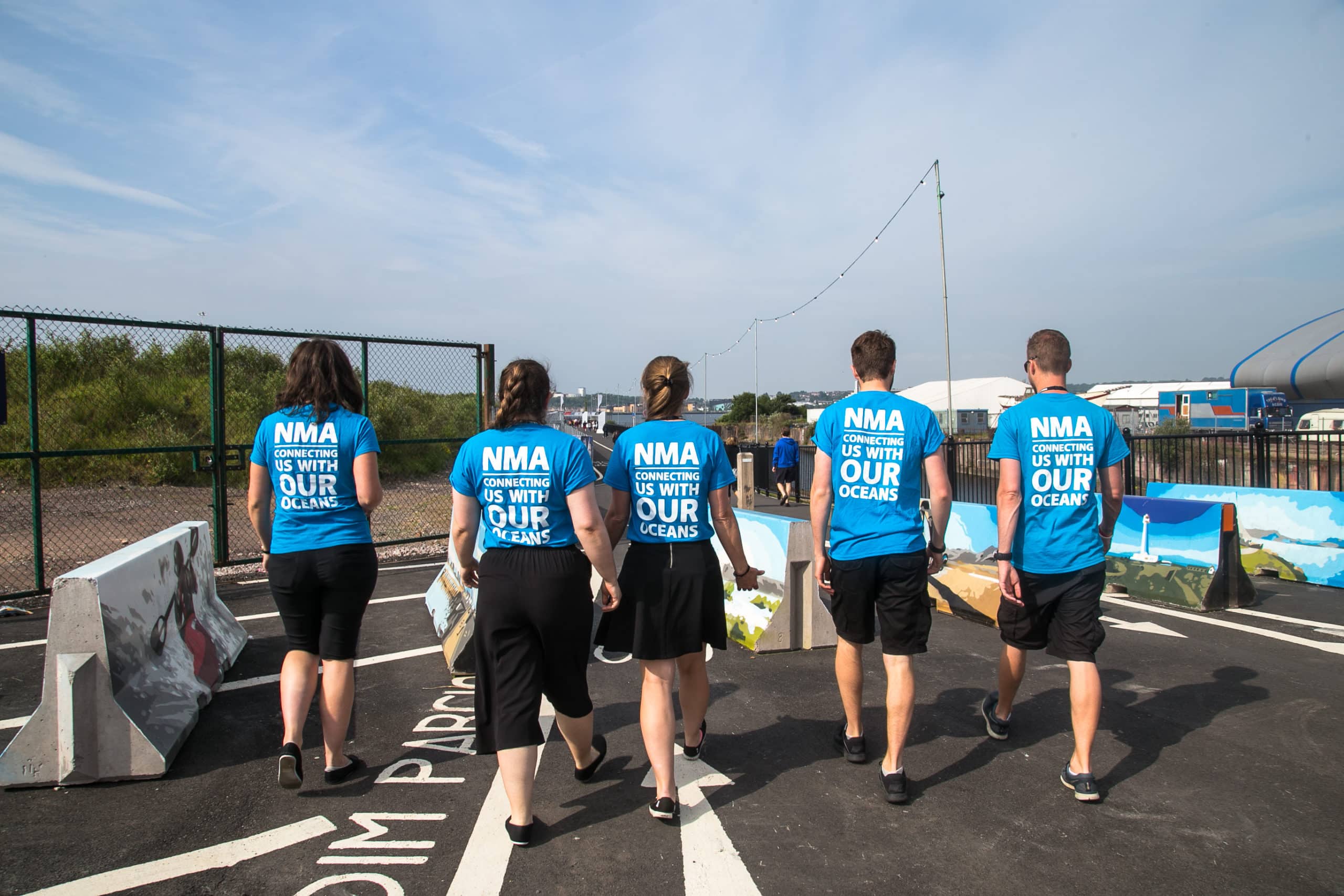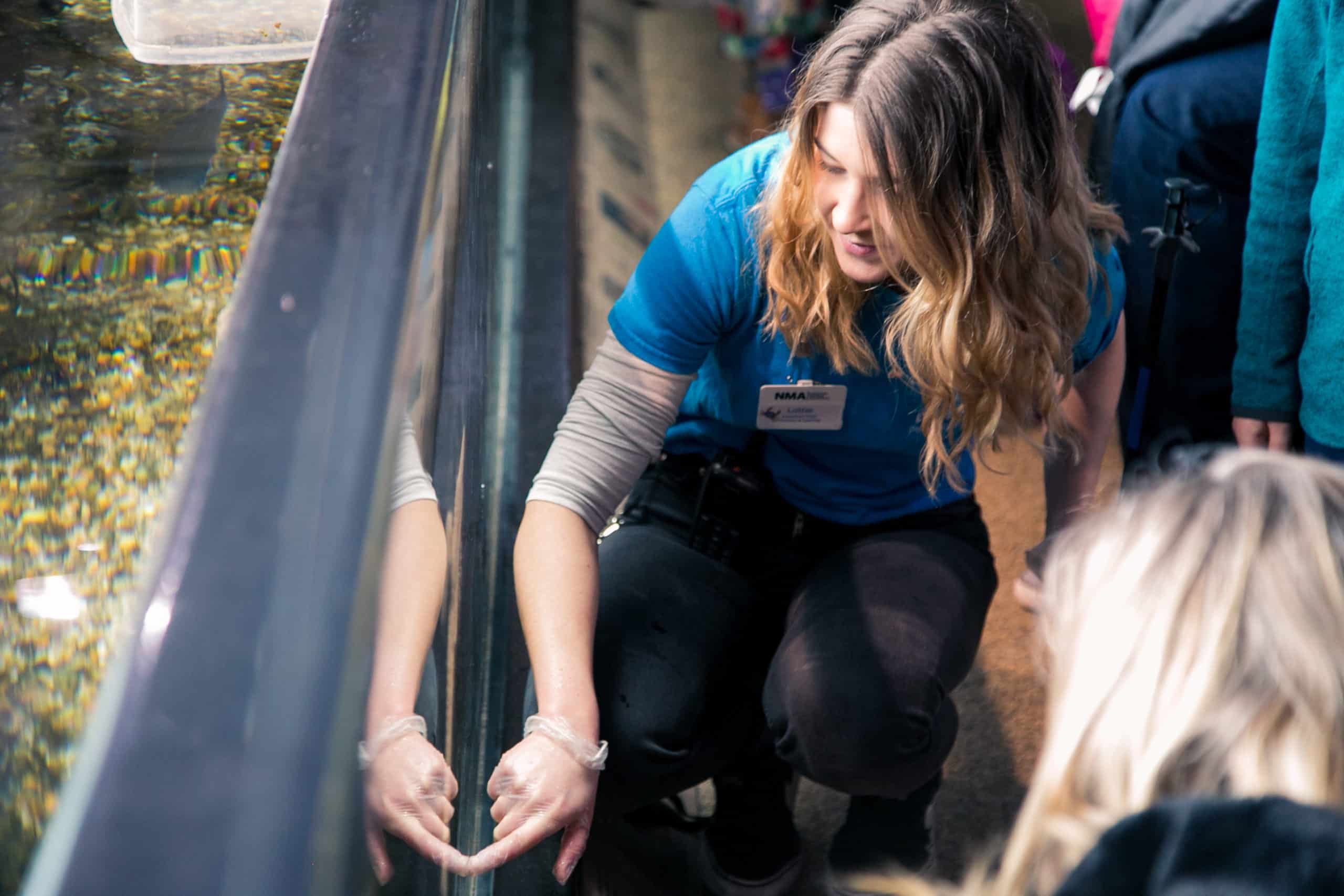The Ocean Conservation Trust is a global Ocean conservation charity working to its goal of a healthy Ocean.
Across the charity, we share a like-minded approach of Ocean optimism. We want people to feel connected to the Ocean and help to care for it by adopting pro-Ocean behaviour.
By connecting people to the Ocean, we can motivate them to love it for the joy it brings them, the air they breathe, the food they eat and the plethora of other benefits the Ocean has for both humanity and the planet.
These connections are often developed through our window to the Ocean, the National Marine Aquarium, where our team of Ocean optimists channel their passion for the marine world through fun engagement. This could be through the animals we have to the workshops we have developed, each focusing on a different issue facing the Ocean today. By presenting people with solutions to big issues, such as climate change and biodiversity loss, they are more likely to want to do something to help, particularly if they have that connection to an animal they love.

The OCT team at the Volvo Ocean Race in Cardiff in 2018. Photo credits: NMA
People aren’t always able to access the Ocean and so don’t develop those connections that are so vital to Ocean conservation. In the UK alone, 18% of children haven’t been to the beach or visited coastal areas, a figure which is quite shocking when you think that the furthest point in the UK from the Ocean is only 70 miles. For some families, it can be expensive to access the coast, through public transport costs, accommodation if needed, and food. However, this is something that is necessary when we as conservationists can bring the Ocean inland, through virtual reality, artefact handling and virtual tours. Using technology which has rapidly improved over the past few years to be able to bring the Ocean to people is a huge advantage to conservation groups.
Another important tool for us at the OCT is helping people to realise how everything we do in our lives is strongly linked to the Ocean. This is accomplished by achieving our goal of an Ocean Literate nation, linking the essential principles of Ocean Literacy to the national curriculum in schools. This helps those in-land realise that the Ocean is in each part of their daily lives and that what they do each day will have an impact on it, whether that’s for better or worse.

An OCT Ranger engaging with the public. Photo credits: NMA
In 2014 we helped to create the hashtag #OceanOptimism, focusing on solutions for our Ocean rather than the well-publicised problems. Everything we do is focused on supporting a healthy Ocean, and how we connect people to the lifeblood of our planet and put the solutions firmly into people’s hands. If we all come together to make these positive choices for our Ocean, then there is no reason that we can’t make a difference for the future of our Ocean and the life that depends on it.


